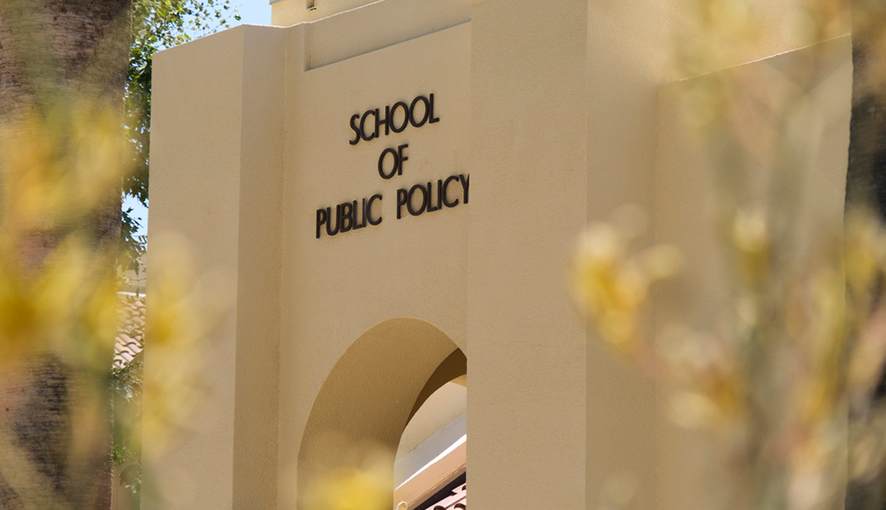Public Policy Curriculum

Are you passionate about creating positive change in society through public policy? Do you want to acquire the knowledge and skills necessary to tackle pressing issues and craft impactful policies? A public policy curriculum offers a pathway to navigate the intricate world of policymaking.
Special topics in public policy span critical areas like healthcare, education, transportation, and environmental policy, significantly shapes the fabric of society. The choices made in these sectors profoundly influence people and communities, underscoring the growing need for individuals with the skills to analyze, create, and put into action effective policies.
A carefully designed public policy curriculum arms students with the necessary analytical skills and knowledge to make informed decisions about complex issues and bring about significant change as public policy leaders. Whether you a career path in government, non-profit organizations, or the private sector, a thoughtfully structured graduate degree program in public policy lays a sturdy groundwork for tackling complex policy challenges and contributing to a more promising future.
We'll share the essential elements of public policy coursework and highlight the meaningful advantages a Masters in Public Policy provides for individuals committed to making a positive impact through policy initiatives.
Understanding the Core Principles of Public Policy
The core principles of public policy encompass fundamental concepts that guide the development, implementation, and evaluation of policies aimed at addressing societal issues. While the specifics can vary, depending on the context and perspective, some widely recognized core principles include:
- Public Interest: Policies should be designed to serve the greater good and address the needs and concerns of the public. The focus is on enhancing the well-being and quality of life of the community as a whole.
- Equity and Fairness: Public policies should strive for fairness and equity, ensuring that benefits and burdens are distributed justly across diverse populations. This principle promotes social justice and aims to reduce disparities.
- Effectiveness: Policies should be designed to achieve their intended outcomes efficiently and effectively. This involves a careful consideration of the available resources and the practicality of implementation.
- Efficiency: Public policies should make the best use of available resources to achieve their objectives. This principle emphasizes the need to minimize waste and optimize the allocation of resources.
- Transparency: Policies should be developed, implemented, and communicated in a transparent manner. Openness and clarity in the policymaking process enhance accountability and foster public trust.
- Accountability: Policymakers and institutions responsible for implementing policies should be held accountable for their actions and the outcomes of those policies. This principle reinforces responsible governance.
- Participation and Inclusiveness: The public should have opportunities to participate in the policymaking process. Inclusivity ensures that diverse perspectives are considered, contributing to more comprehensive and representative policies.
- Adaptability: Policies should be flexible and adaptable to changing circumstances. The ability to adjust policies in response to new information or evolving societal needs is crucial for their long-term success.
- Evidence-Based Decision-Making: Policymakers should rely on empirical evidence and sound research when formulating policies. Evidence-based decision-making enhances the likelihood that policies will achieve their intended goals.
- Rule of Law: Public policies should adhere to established laws and legal principles. This ensures that policies are consistent with constitutional and legal frameworks, promoting stability and fairness.
Understanding and applying these core principles is essential for policymakers and those engaged in public policy analysis. These principles provide a guiding framework for creating policies that are effective, just, and responsive to the needs of society.

The Core Curriculum Requirements in the Master's in Public Policy Program
At Pepperdine University, the Public Policy program includes 50 credit hours of coursework that spans two years. In your first year, you'll focus on the core courses that will lay down the foundation to prepare you for specialty study tracks. It spans across economics, sociology, political science, statistics, and more. Students will gain academic knowledge in quantitative methods, policy analysis, and research methods in their time here.
Applied Economic Analysis of Public Policy
This core course aims to teach students how to apply vital economic principles to both domestic and global policy challenges. Students will gain proficiency in employing economic reasoning to address public policy issues, covering key concepts like consumer choice, firm production decisions, the role of prices in resource allocation, pricing of public goods, market dynamics, market failure, and externalities.
Applied Research Methods in Public Policy
This course focuses on applying public policy research methodology and statistical techniques to assess public policy decisions. Students will grasp basic research design methodology, interpret results, and gain practical knowledge in variance, regression, cost-benefit analysis, survey sampling, and other evaluation tools. The course also introduces students to abundant online data sources.
Ethical Dimensions of Public Policy: Great Books and Great Ideas
This course surveys significant books that serve as a philosophical, historical, and moral foundation for policy initiatives. It explores enduring themes, such as limited government, capitalism, the moral consequences of public action, and the tension between moral autonomy and dependence. Students will encounter influential leaders who have shaped the public good throughout history. While specific books may vary, the course aims to provide a touchstone for understanding key principles and themes essential for subsequent coursework, serving as a foundation for exploring the roots of American order and the values that underpin it.
Political, Organizational, and Strategic Aspects of Advanced Policy Analysis
This course strengthens your policy analysis skills by diving into the core responsibilities of public leaders, focusing on tasks such as analyzing political feasibility, securing support from constituencies, and implementing effective strategies for organizational goals. Key considerations include dealing with authorizing bodies, political superiors, and interest groups, and aligning organizational capabilities with effective leadership demands. The course highlights the significance of resource allocation, and budgeting, and addresses topics like entrepreneurship and reengineering in government and nonprofit agencies. It also explores the elevated ethical and moral standards expected of leaders, examining their impact on strategic leadership.
Policy Seminar (Capstone)
In your final semester, this course offers an integrative experience by guiding students in developing a real program or policy in collaboration with a local, state, national, or international agency. The focus is on implementing a specific policy directive, considering factors such as evaluation, personnel, budget, client organization, and impact. Students can undertake this project individually or as a team exercise, fostering leadership skills. Faculty review and evaluation are supplemented by potential assessments from agency officials and key representatives of affected constituencies.
Professional Development
In this program, students are mandated to actively participate in interactions with policy professionals and events throughout each semester of their enrollment in the School of Public Policy. Following these engagements, students are obligated to reflect on their experiences and submit these reflections to the school. This course is repeatable up to four times, allowing students to consistently integrate real-world policy encounters into their academic journey.
The Roots of American Order: What is Public Policy?
This course explores the historical and contemporary aspects of concepts, systems, and institutions influencing public policy development. It lays the groundwork for understanding the moral consequences of public action, examining how government distribution of benefits impacts incentives and values. The course also delves into policy development and implementation by various sectors, including business, labor, nonprofits, as well as the church, family, and educational institutions in American society.
Elective Course Options for Specialized Knowledge
As students progress through the Master's in Public Policy program, they are afforded the opportunity to delve into specialized areas that align with their individual interests and career goals. These additional course options serve as a customizable pathway, allowing students to deepen their knowledge in specific domains. Whether aspiring to become experts in economic policy, political dynamics, international relations, or conflict resolution, the range of elective choices provides a tailored learning experience that enhances the relevance and applicability of their public policy education.
Applied Economic Policy
In the Applied Economic Policy elective, students engage in an in-depth exploration of the intersection between economic principles and the formulation of public policies. This specialization equips students with the analytical tools necessary to assess and influence economic outcomes within the context of public decision-making. Topics may include economic impact assessments, fiscal policy analysis, and strategies for addressing socioeconomic disparities. This elective empowers students to apply economic theory to real-world policy challenges, fostering a nuanced understanding of the intricate relationship between economic forces and public policy dynamics.
American Policy and Politics
The American Policy and Politics track provides students with a comprehensive examination of the intricacies of the U.S. political landscape. Covering historical developments, contemporary issues, and the dynamics of policymaking at various levels of government, this specialization offers insights into the unique challenges and opportunities within the American political system. Students delve into the nuances of electoral politics, legislative processes, and the role of interest groups, gaining a profound understanding of how policy decisions unfold within the American democratic framework.
International Relations and National Security
For those with an interest in global affairs, the International Relations and National Security track offers an in-depth exploration of the multifaceted world of international policymaking. This specialization delves into diplomatic strategies, global governance structures, and the intricate relationships between nations. Students gain insights into the complexities of national security policies, examining issues such as defense strategy, intelligence, and international conflict resolution. This elective prepares students to navigate the challenges and opportunities presented by the ever-evolving global policy landscape.
State and Local Policy
The State and Local Policy track focuses on the unique dynamics of policymaking at the regional and community levels. Students explore the role of state and local governments in addressing pressing issues that directly impact communities. This specialization delves into topics such as urban planning, education policy, and healthcare delivery at the regional level. By understanding the specific challenges faced by state and local policymakers, students are equipped to contribute meaningfully to the development and implementation of policies that directly affect the lives of individuals in diverse communities.
Dispute Resolution
The Dispute Resolution track hones in on the art and science of resolving conflicts within the realm of public policy. Students learn various strategies for negotiation, mediation, and conflict resolution in the context of policymaking. This specialization is crucial for those seeking to navigate the complexities of policy disputes, whether within government agencies, nonprofit organizations, or private sector entities. Students develop skills to facilitate constructive dialogue, find common ground, and contribute to the creation of policies that reconcile competing interests and foster consensus in diverse policy arenas.
Fostering Leaders Across Differences: Pepperdine School of Public Policy's Distinctive Approach
At the Pepperdine School of Public Policy, we are dedicated to nurturing a team of public leaders equipped to navigate the complexities of our diverse and dynamic world. Our distinctive approach goes beyond the conventional boundaries of policy education, aiming to prepare individuals who can collaboratively work across differences and sectors to forge sustainable solutions. Through an innovative curriculum, our students are not only adept at analyzing the quantitative aspects of policy decisions but are also trained to delve into politics from comprehensive perspectives encompassing historical, philosophical, and faith considerations.
Navigating Diversity and Sectoral Collaboration: A Core Pillar of Leadership
Our commitment to preparing leaders who excel in working across differences stems from the recognition that the most pressing challenges of our time demand collaboration across diverse perspectives and sectors. Our curriculum actively fosters an inclusive mindset, encouraging students to engage with and appreciate the richness of diverse backgrounds, ideologies, and experiences. This approach is foundational to our belief that effective public leaders must be adept at fostering collaboration and transcending traditional boundaries to create policies that address the multifaceted needs of society.
Distinctive Curriculum and Education: Beyond Quantitative Analysis
Central to our mission is the design of a distinctive curriculum that extends beyond the narrow confines of quantitative analysis. While quantitative skills are undoubtedly crucial, we emphasize a holistic understanding of policymaking. Our students are exposed to a multifaceted examination of politics, incorporating historical, philosophical, and faith perspectives. This multidimensional approach ensures that our graduates possess not only a robust analytical toolkit but also a nuanced understanding of the values, beliefs, and historical contexts that shape policy decisions.
Analyzing Politics Holistically: From Historical Roots to Faith Perspectives
Our curriculum encourages students to analyze politics through a historical lens, fostering an appreciation for the evolution of political thought and institutions. By delving into the historical roots of political structures, our students gain insights into the forces that have shaped contemporary political landscapes. Furthermore, we recognize the profound impact of philosophical and faith perspectives on policy decisions. Our students engage in thoughtful discussions that explore the ethical dimensions of policymaking, considering the moral imperatives that underpin decisions affecting society.
Preparing Students for a Diverse and Dynamic Career: Beyond Conventional Boundaries
Pepperdine University's graduate programs prepare students not just for the challenges of today but for the evolving complexities of tomorrow. Our graduates emerge with a unique skill set that goes beyond conventional boundaries, enabling them to bridge differences, foster collaboration, and create sustainable policy solutions. By integrating diverse perspectives and values into our curriculum, we instill in our students the capacity to approach policymaking with wisdom, empathy, and a commitment to the common good. As a result, our alumni are not just public leaders; they are architects of positive change in a diverse and dynamic world.

Become a Graduate of Pepperdine University's School of Public Policy
Pepperdine University's School of Public Policy is committed to cultivating a new generation of public leaders who are equipped to meet the complex challenges of our times. Our graduates possess an expansive set of skills and knowledge, allowing them to navigate a world that is becoming increasingly interconnected and interdependent. By actively engaging with diverse ideas, perspectives, and experiences, they are able to create meaningful solutions that address the multifaceted needs of society.
Take the first step and learn more about our Master of Public Policy program and the program requirements for admission. Become a part of the Pepperdine University graduate school family and start your journey toward a career in public policy.